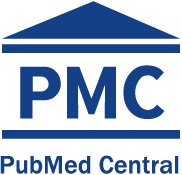Relevant public health enteropathogens
DOI:
https://doi.org/10.17843/rpmesp.2015.321.1588Keywords:
Enteropathogenic Escherichia coli, Diarrhea, Child, Rotavirus, Norovirus, Enterohemorrhagic Escherichia coliAbstract
Diarrhea remains the third leading cause of death in children under five years, despite recent advances in the management and prevention of this disease. It is caused by multiple pathogens, however, the prevalence of each varies by age group, geographical area and the scenario where cases (community vs hospital) are recorded. The most relevant pathogens in public health are those associated with the highest burden of disease, severity, complications and mortality. In our country, norovirus, Campylobacter and diarrheagenic E. coli are the most prevalent pathogens at the community level in children. In this paper we review the local epidemiology and potential areas of development in five selected pathogens: rotavirus, norovirus, Shiga toxin-producing E. coli (STEC), Shigella and Salmonella. Of these, rotavirus is the most important in the pediatric population and the main agent responsible for child mortality from diarrhea. The introduction of rotavirus vaccination in Peru will have a significant impact on disease burden and mortality from diarrhea. However, surveillance studies are needed to determine the impact of vaccination and changes in the epidemiology of diarrhea in Peru following the introduction of new vaccines, as well as antibiotic resistance surveillance of clinical relevant bacteria.Downloads
Download data is not yet available.
Downloads
Published
2015-04-02
Issue
Section
Symposium
How to Cite
1.
Riveros M, Ochoa TJ. Relevant public health enteropathogens. Rev Peru Med Exp Salud Publica [Internet]. 2015 Apr. 2 [cited 2025 Jul. 23];32(1):157-64. Available from: https://rpmesp.ins.gob.pe/index.php/rpmesp/article/view/1588





























